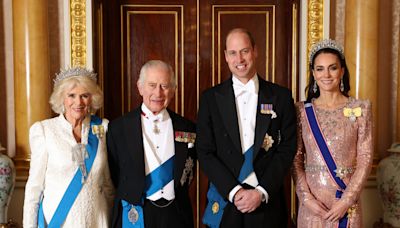Search results
Sep 12, 2022 · In 1689, Great Britain officially became a constitutional monarchy. That means the power to pass legislation resides with an elected body known as Parliament. Queen Elizabeth (and now King...
- Marco Della Cava
- National Correspondent/San Francisco
Many constitutional monarchies still retain significant authorities or political influence, however, such as through certain reserve powers, and may also play an important political role. The Commonwealth realms share the same person as hereditary monarchy under the Westminster system of constitutional governance.
Constitutional monarchy, system of government in which a monarch (see monarchy) shares power with a constitutionally organized government. The monarch may be the de facto head of state or a purely ceremonial leader. The constitution allocates the rest of the government’s power to the legislature.
- The Editors of Encyclopaedia Britannica
Sep 15, 2022 · Constitutionally-speaking, “the monarch, in almost everything they do, has no choice,” says Robert Hazell, a professor of government and the constitution at University College London.
People also ask
Do constitutional monarchies still have political power?
What is a constitutional monarchy?
How did Britain become a constitutional monarchy?
Which countries have the most constitutional monarchies?
Jun 6, 2014 · It is said that monarchs embody aristocratic excess and unrepresentative power, neither of which has a place in modern democratic society. On the matter of excessive wealth, royal riches across ...
- John Rees
Jun 16, 2019 · Yes, dozens have been swept away by war and the great political movements of the 20th century: nationalism, anti-colonialism, republicanism, and Marxism. In 1900, most of the world — and almost...
Sep 12, 2022 · (The explanation of Britain’s constitutional monarchy provided by the House of Lords Library begins with Magna Carta in 1215, and the initial restraints on royal power, and continues though a...


